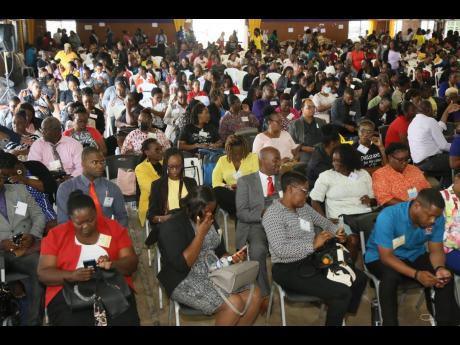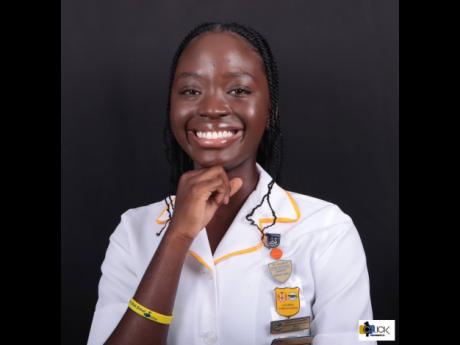Students want teachers to make up for lost time amid protests
The president of the National Secondary Students Council (NSSC) is hoping that school administrations will implement measures to make up for teaching time lost due to protest action this week. Thousands of students, many of whom are in the throes...
The president of the National Secondary Students Council (NSSC) is hoping that school administrations will implement measures to make up for teaching time lost due to protest action this week.
Thousands of students, many of whom are in the throes of preparation for their mock and final exams, have seen their lessons disrupted since Monday as a result of sick-outs, sit-ins, and overall protests as teachers press the Government for a better wage offer under the public sector compensation review initiative.
On Wednesday, delegates from the 78 islandwide district associations representing the 24,000-strong Jamaica Teachers’ Association voted to reject the current offer on the table.
NSSC President Dannyelle-Jordan Bailey, who attends St Hugh’s High in St Andrew, told The Gleaner that as the two sides fire salvos, the students have been trapped in the middle, causing much frustration for some of her peers.
“It is a saddening situation because everyone is aware that these teachers are undervalued and underpaid, and they are not just teachers but parents, psychologists, and counsellors,” said Bailey, adding that like many of her peers, she empathised with the educators’ plight.
“But at the same time,” she said, “it is affecting the students in the process, especially so close to exams. There are students who have gone to school this week, spent an hour, and then were sent home, which is unfair. So we understand what the teachers are going through, but it does have a domino effect on us.”
She said some mock exams have been postponed altogether and that in at least one school in the Corporate Area, students went in for mock exams, only to be turned out of the exam room.
This part of the year, she said, is when many students are cramming information into their brains, trying to finish the syllabus, and when they are most reliant on teacher support to complete school-based assessment projects and internal assessments for Caribbean Examinations Council-administered exams.
Bailey said she is hopeful that school administrators will take targeted steps to assist students directly affected by the protests.
In the meantime, she has urged her peers not to become complacent about their studies.
Yesterday, Linval Wright, the head of the Jamaica Association of Principals of Secondary Schools, said that although the protests inevitably caused setbacks for students, they were not as bad as others they have faced in recent months.
“It is just something that has to be thought through. I don’t have any ready answers to it, but it is just something that we have to sort through,” he said. “It will be difficult but it is not impossible ‘cause I think COVID-19 was much more difficult. So the important thing for me is to understand that it is not impossible.
“We just need to do the work to ensure that we get all the activities in,” he posited.
SANCTIONS LOOM
Protesting teachers could be hit with deductions from their salaries and leave entitlements as well as other forms of disciplinary action based on a circular sent by the Ministry of Education to school administrators.
In the circular to regional directors, school board chairmen, and principals, the ministry called for proper documentation of leave taken by teachers during the period of disruption.
It also pointed to Regulation 19 (3), which states: “A member of staff who is absent without leave and whose explanation of absence is unacceptable to the board, through the principal, may be liable to a loss of salary in respect of the period of absence.”
The ministry said sick leave for a period exceeding three consecutive school days must be supported by a medical certificate and that ordinarily, casual leave should be applied for before it is taken.


